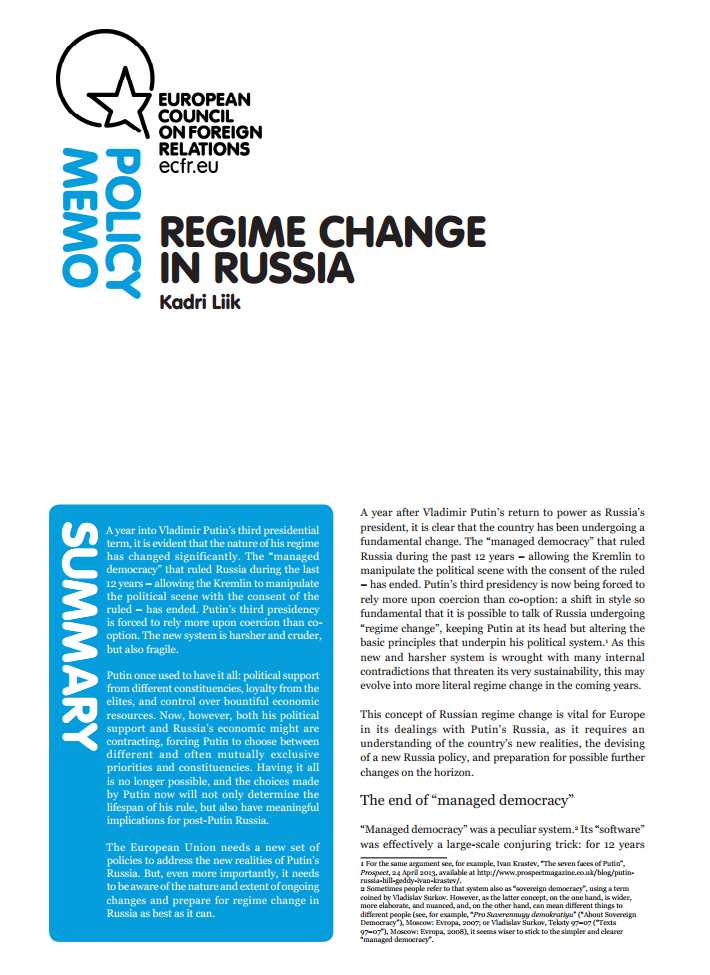Regime change in Russia
What does the end of “managed democracy” mean for Europe?
When EU leaders arrive in Yekaterinburg for the June 3rd/4th summit with their Russian counterparts, they are arriving in a new Russia. Europeans need to think again about how they deal with the changes that the country has undergone, and even how to deal with a post-Putin Russia.
Although Vladimir Putin is back in the Kremlin, the era of “managed democracy” – where the Kremlin manipulated politics with the consent of the ruled, backed by high oil prices – is over. Instead, Putin’s third presidency is fragile, relying more upon coercion than co-option, and beset by economic problems.
A new ECFR memo – “Regime change in Russia” by Kadri Liik – explains how the nature of Putin’s power has changed, and lays out what this means for Europe as it works out how to deal with the new Russia.
- The most effective EU policies towards Russia will require more homework on energy security (diversifying supply routes, creating a common energy market) and anti-corruption initiatives. This would make EU members less vulnerable to Moscow divide-and-rule tactics.
- As Russia shares many of the West’s concerns about disorder in the Middle East, it may respond favourably to the offer of contributing to a realistic settlement over Syria and Iran. The EU should not bargain domestic carte blanche on issues like human rights and democracy in exchange for this cooperation.
- As ever, Putin is ready to exploit European indecision and weakness, for instance on issues like the granting of visa-free travel. Europe must be strong, for instance by combining resources to ensure representation at political court cases such as the trial of opposition leader Alexei Navalny.
“The third Putin presidency faces falling popularity and widespread dissatisfaction manifesting itself in a broad but fragmented opposition to the Kremlin, and without the safety blanket of strong oil prices. Europe will have to learn to deal with this new Russia, understanding how it has changed, while crafting more effective policies to deal with it.” Kadri Liik
The European Council on Foreign Relations does not take collective positions. ECFR publications only represent the views of their individual authors.



